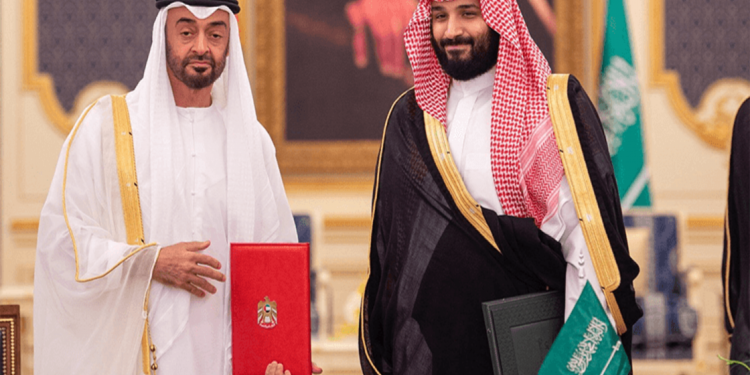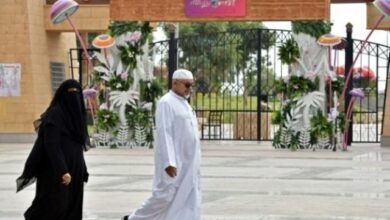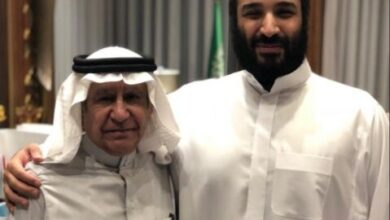The UAE to build a new axis in the Middle East without Saudi Arabia

Dr Abdul Khaleq Abdullah, an advisor to the Crown Prince of Abu Dhabi, Mohammed bin Zayed, unveiled a new regional axis that is now being established under the leadership of the UAE.
Abdul Khaleq Abdullah said in a tweet that the regional axis includes the signatory countries of the Abrahamic Agreement.
Abdul Khaleq Abdullah added: “It may come at the expense of expired regional axes.”
Abdul Khaleq Abdullah’s talk about the expired regional axes sparked widespread controversy.
One of the tweeters asked about those axes, directing his speech to Abdul Khaleq Abdullah, “Do you mean Saudi Arabia ?!”
In August of last year, former US President Donald Trump announced a peace agreement between Israel and the UAE, naming it the Abrahamic Agreement.
Trump stressed the historical significance of the agreement.
The former US ambassador to Israel, David Friedman, pointed out that the Abrahamic Agreement came in honour of “the father of all great religions.”
The UAE normalized relations with Israel and was followed by Bahrain, Morocco and Sudan.
The UAE, which was the first Arab country to sign an agreement to normalize and establish diplomatic relations with Israel this year under the mediation of Trump, welcomed Morocco’s decision to resume diplomatic ties and contacts with Israel.
Last March, former President Trump’s envoy to the Middle East, Jason Greenblatt, said that Saudi Arabia is moving toward comprehensive normalization with Israel.
Greenblatt added: It is true that Saudi Arabia needs more time to reach the comprehensive agreement with Israel, but it is on the way to reach that.
He explained that Washington’s allies in the Middle East face the greatest danger from the Iranian threat, including nuclear threat, missiles, drones, proxies, terrorism and other malicious activities.
Greenblatt commented on his view of how Israel should pursue peace with Saudi Arabia and other Arab countries.
“These agreements are complex and take a long time, but [I prefer] any method that can bring the appropriate opportunity to announce and complete any agreement quickly, as we have seen.”
He indicated that Riyadh would come down this path, but we have to be patient and give Saudi Arabia the space it needs.
He believed that exerting pressure from any party, including the United States, would not result in a normalization agreement of great value or lasting for an extended period.
And Greenblatt continued, “Total normalization will come when everyone is ready for it, and the right reasons.” Encouragement is essential, but the pressure isn’t worth the effort.





